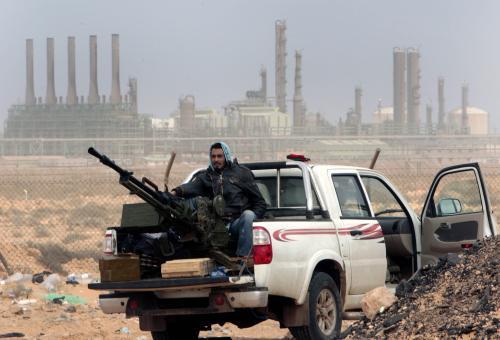
LIBYA: KEY TERMINALS REOPENS

Libya said it began speaking to traders on Monday as it seeks to increase oil exports following the end of a near year long blockage of two key terminals by rebels.
The state-run National Oil Corporation lifted force majeure on the Es Sider and Ras Lanuf ports on Sunday.
Oil exporters are protected against legal action by a force majeure clause in the event of disruption but it also prohibits loadings from affected ports.
The ports, which would normally handle about half of the country's oil exports, were handed over last week by the rebels who had seized them for political and financial demands.
"We, only today, have started talking to our previous customers and partners so we can fix our shipment programme," said Mohamed Elharari, a spokesperson for the state-owned National Oil Co. "We currently have one or two shipments worth of oil in the terminals."
Libya produced about 1.4m barrels a day before protests, strikes and blockades reduced output to a low of 150,000 barrels a day.
Production now stands at 325,000 b/d, according to country's news agency.
"The amount of Libyan oil in storage at the two terminals is significant because it determines how much extra crude Libya will be able to export in the short term before fields that supply Ras Lanuf and Es Sider are restarted," said Richard Mallinson at the London-based consultancy Energy Aspects.
The figures implied by Mr Elharari's comments amount to about half of the 7.5m b/d number Libya's oil ministry disclosed to Bloomberg.
"In my view, the actual amounts available in storage tanks are probably closer to the lower estimates," said Mr Mallinson.
Even so, this still represents a significant boost to supplies once loadings start, at about an average of 250,000 b/d over two weeks, he added.
Mr Elharari said it was not clear when the first loading would begin but added that Libya would make shipments gradually to avoid disturbing the price of oil drastically.
Hopes of a boost in exports from the terminals has contributed to a $5 decline in the price of Brent since June 19.
Sectarian violence in Iraq has, so far, not hurt production in the Gulf nation and added to downward pressure.
ICE Brent August fell 0.1 per cent to $110.54 in morning trading.
ft.com





